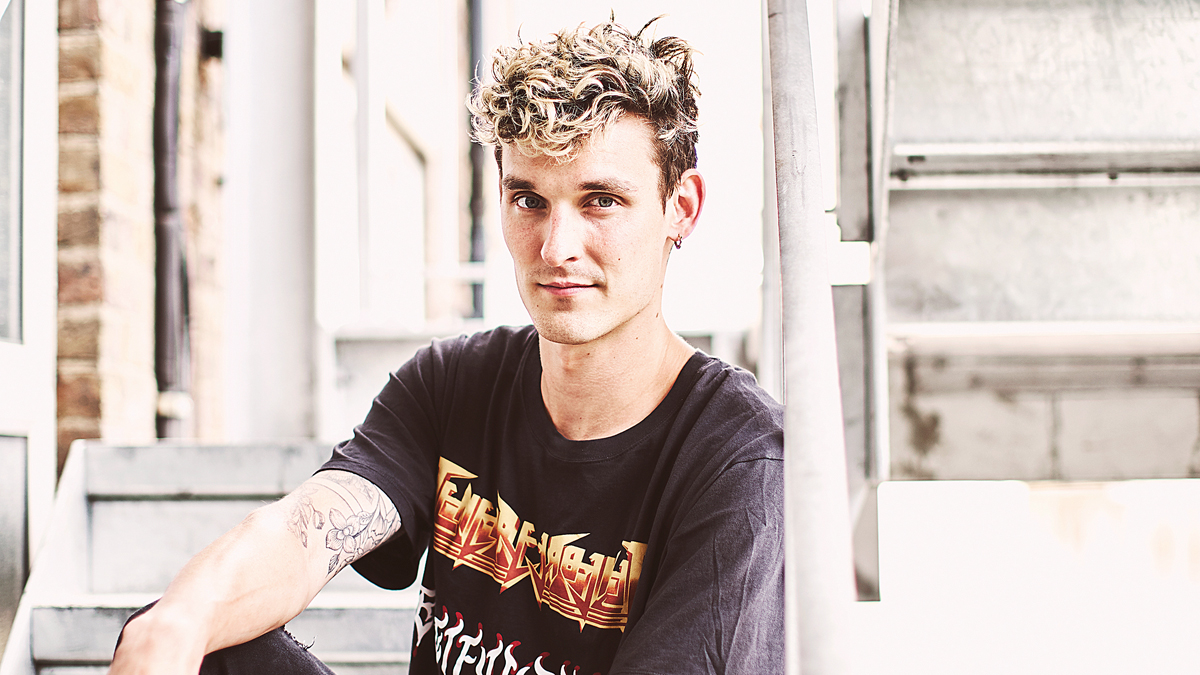The Track: GRiZ breaks down Mercy, feat Valentina
The sax-toting future funk fiend discusses his recent track
Want all the hottest music and gear news, reviews, deals, features and more, direct to your inbox? Sign up here.
You are now subscribed
Your newsletter sign-up was successful
Colorado-based future funk maestro Grant Richard Kwiecinski - better known as GRiZ - has released a whopping six studio albums over the last decade, collaborating with the likes of DRAM, Wiz Khalifa and Matisyahu, and building a huge following in the process.
We caught up with Grant at Point Blank’s studios in London to find out how he created recent release, Mercy featuring Valentina.
You mention in the video that the majority of your most recent album, Ride Waves, was written from your point of view, whereas Mercy was written from the featured singer Valentina’s point of view. How was it having the voice of the song come from someone else?
“It was sort of freeing in a way... it’s like writing a bit of fiction. Inevitably though, it’s going to be framed from your own experiences. No matter how hard I try and write from her perspective, it still kind of feels like it’s about me. But it was a good challenge to try and get into somebody else’s head. It’s also really fun because you can personify somebody else... it’s like dressing somebody else.”
There are a lot of sounds in the track that you recorded yourself, like shouts and whistles. Do you do that a lot?
“Sure. I love using things that are an extension of my body - like my voice - or interacting with things. I love interacting with my immediate world. As much as I love sitting in front of a computer and dialling in weird bass sounds for hours, I love being active and physically doing. I play the saxophone, I love using the drumsticks on stuff. Whistling is kind of an abstract way to create a bass sound... the more I can interact with music the better.”

Do you feel your musical training is a help or hindrance when it comes to making electronic music?
Want all the hottest music and gear news, reviews, deals, features and more, direct to your inbox? Sign up here.
“It’s kind of a double-edged sword – sometimes I feel like it really helps, because it helps me understand why certain things are working; or if something isn’t working. It also helps enable me to make quicker decisions when it comes to composition stuff, like: ‘Well OK, the bassline should sound something like this over these chords’. I know the different variations that I can choose very quickly.
"The double-edged part is that when I do something that is so far outside of that, it sounds funny to me. Sometimes you hear electronic music that is very non-musical. But that can be cool and likable, because it’s different and weird and it hits you in a different emotional way.
“I don’t think that you have to be very ‘musically intelligent’ to write good music. I think that the best music is written from an emotionally intelligent perspective; people who are really in tune with how they feel about things. I think the thing that I enjoy the most about music is that it helps me outline and express the emotional quality of life.”
Hardware
Apple MacBook Pro
Universal Audio Apollo Twin > Kii Three monitors
Ableton Push
Fender Stratocaster
Fender Precision Bass
Yamaha Custom Z
Software
Ableton Live
Xfer Records Serum
FabFilter plugins
iZotope plugins
Native Instruments plugins > Soundtoys plugins
Waves plugins
You put a lot of musical ideas in your songs. Does that ever make mixing and arrangement difficult?
“I was the kind of person who started writing music that was, like, nine minutes’ long. So the trick is, how do you take all of the cool ideas and then fit them into one song? I sacrifice a lot. I don’t have a problem deleting stuff. I think to myself: ‘I had to get over that... I can’t be a hoarder’. If it’s not serving the ultimate purpose, I just gotta delete it and move on.
“I’ll create and create, and I’ll say yes to everything. Once I start, there’s always then one thing which will speak to me. Then everything needs to cater to that one thing. That’s how my creation process happens - I’ll make everything in the world up until that moment happens. Then I finally find that thing that really speaks to my heart and I start making ideas around that idea, as an accompaniment. Maybe it’s a really cool drum line that I have. Maybe it’s the hook. Maybe it’s the chords or the tempo choice with the drums. Whatever that choice ends up being, then that’s the inspiration.
“When I have that, it’s time to do the same thing, but this time the objective is to find something that works along with the inspiration.”
How do you go about getting rid of unhealthy attachments to ideas, so that you can let them go?
“Just smash the delete button. Then save, and once you’ve saved there’s no undo-ing, it’s over. At that point, you’ve sealed your fate!”



I’m the Deputy Editor of MusicRadar, having worked on the site since its launch in 2007. I previously spent eight years working on our sister magazine, Computer Music. I’ve been playing the piano, gigging in bands and failing to finish tracks at home for more than 30 years, 24 of which I’ve also spent writing about music and the ever-changing technology used to make it.